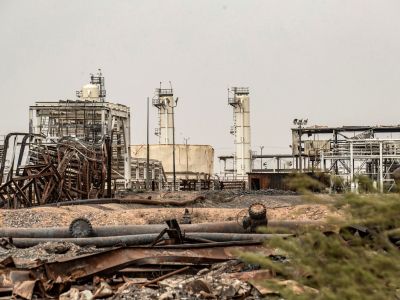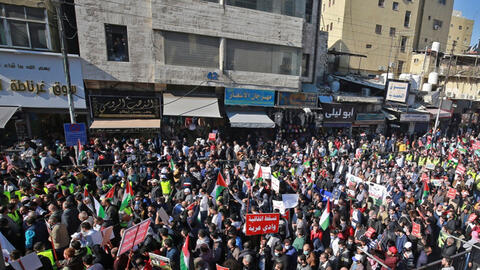Tens of Jordanian lawmakers have withdrawn from a parliamentary session in protest over a controversial water-for-energy deal with Israel and the United Arab Emirates.
Bravo. Decency is not dead altogether. Tens of Jordanian lawmakers leave a parliamentary session held to discuss a water-for-energy deal with Israel and the United Arab Emirates. https://t.co/5z3YIUJP52
— Soraya Sepahpour-Ulrich (@InsightInc1) December 8, 2021
Abdel Karim al-Daghmi, the speaker of the House of Representatives, on Wednesday decided to postpone the session, which is scheduled to discuss the pact, to Monday after the withdrawal resulted in a loss of quorum.
Earlier on Wednesday, Jordanian protesters gathered in front of the lower house of the Jordanian parliament in Amman to call for cancelation of the deal.
The demonstrators carried banners that read “Down with the agreements of shame with the Zionist entity” and “The water-for-energy deal is a new crime against the homeland and the citizens.”
Last month, Jordan, Israel, and the United Arab Emirates inked the deal in the presence of US climate envoy John Kerry. The initiative is subject to feasibility studies.
Under the pact, Jordan would supply Israel with 600 megawatts of power generated from a solar plant that would be built by the UAE -- the first Persian Gulf Arab country to normalize ties with Tel Aviv last year -- while Israel would provide water-scarce Jordan with 200 million cubic meters of desalinated water in return.
رفضا لاتفاقية النوايا #الطاقة_بدل_الماء #أردنيون_ضد_التطبيع #صفعة_قرن#التطبيع_خيانة#تسقط_صفقة_القرن#التحالف_الوطني_لمجابهة_صفقة_القرن pic.twitter.com/eh7U5CBpDr
— خالد الجهني (@KhaledEljuhani) November 25, 2021
After the agreement was announced, several demonstrations rocked Jordan and calls have risen to cut ties with Tel Aviv and scrap the project.
Jordan signed a so-called peace deal with Israel in 1994, but Jordanians are at odds with their government and oppose any form of normalization of ties with the occupying regime.
The vast majority of Arabs oppose normalization and support the Palestinian cause.
This article has been adapted from its original source.











